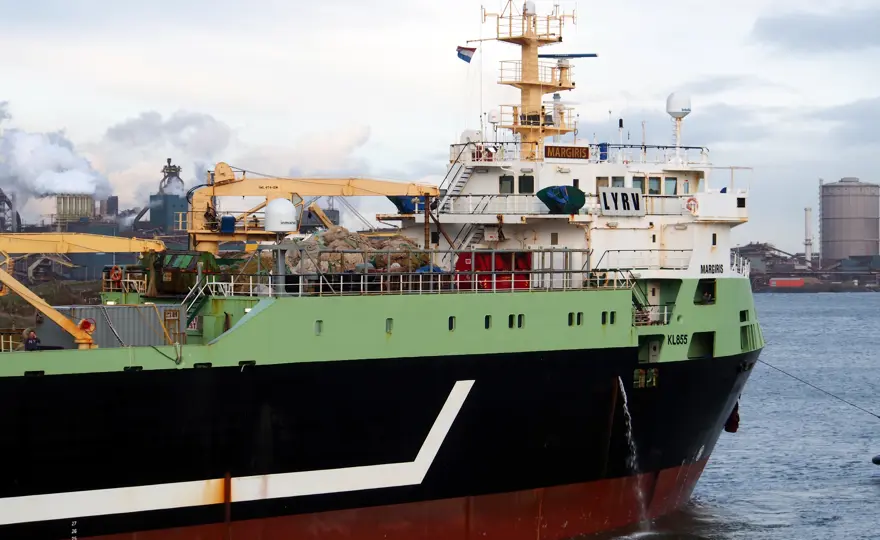ClientEarth Communications
2nd September 2022


Our ocean is hard at work. Covering enormous swathes of our planet, its vast depths are still a mystery. But what we do know is that every day, it sucks carbon out of the atmosphere, helping to regulate our global climate. We cannot tackle climate change without this vital service from the ocean – but it needs to be in good shape to keep doing it. Right now, human activities at sea are jeopardising that ability. It’s time for us to make some definitive changes.
For centuries, people have relied on the abundance of fish and seafood in the ocean for their diets, originally via small-scale and artisanal fishing. But today, one of the biggest drivers of marine biodiversity loss – the disruption of the ecosystems that keep the ocean healthy – is industrial-scale fishing. Fishing at this scale can take out of the ocean in a day what a small boat might remove in a year. Overfishing – which doesn’t give fish stocks time to recover, and can drive them to extinction – threatens the social and economic well-being of coastal communities, as well as our global climate.
Wealthy countries’ industrial fishing fleets continue to have a virtual monopoly over the ocean worldwide and, together with a growing demand for seafood, have become one of the biggest threats for the ocean and the people who depend on fishing for their livelihoods.
Every link in the marine ecosystem is needed to support the ocean’s abundance and diversity. Fishing at a huge scale can’t help but disrupt that balance. Right now, half of the world’s fish stocks are overfished while nearly one in ten are on the brink of extinction. In Europe, all cod stocks are now in such bad shape that scientists consistently recommend EU fleets stop fishing them. In the US, Atlantic cod was foundational to New England's economy, but is now being caught at historically low levels. This is bad for fishers (and fish and chip shop owners) but also for ecosystems: the disappearance of cod – a major underwater predator – is having a spillover effect on the food chain, including plankton, seabirds and other marine mammals.
Many fishing techniques, such as ‘bottom trawling’, are also destroying the marine habitat. By dragging enormous, weighted nets across the sea floor to catch fish, bottom trawlers are also trapping species like sea turtles and damaging seagrass, which has an excellent capacity for storing carbon. In fact, seagrass takes in carbon 35 times faster than tropical rainforests do. As a result, bottom trawling emits around 40% of all annual U.S. transportation emissions.
The ocean is one of the largest carbon sinks on Earth and keeping its ecosystems healthy is critical to tackling dangerous climate change. Seagrass, for example, accounts for 10% of the ocean’s capacity to store carbon and could play a key role in slowing climate change. It also provides a habitat for thousands of species, helping to sustain biodiversity. The fishing industry is making the ocean more vulnerable to climate change and less capable of mitigating its effects.
Fishing vessels also emit a lot of greenhouse gases by burning fuel to power their engines and drag their massive nets – this is especially true for supertrawlers, the behemoths of the fishing fleet. Recent reports show that CO2 emissions from global marine fisheries have quadrupled since 1950 In Europe, the fishing fleet is emitting as much CO2 as Malta every year while benefiting from tax breaks on fuel.
The last decades have seen the development of supertrawlers owned by powerful multinational fishing companies with multimillion investments. In Europe, these supertrawlers and other large scale vessels are now dominating the industry, hauling in 80% of catches while small scale fishers – who represent 75% of the fleet – are restricted to only 5% of the catch.
This is unjust and unequitable. A couple of hundred distant water trawlers – most of them owned by a few Dutch families – have made as much money as the entire small-scale fleet, while capturing most of the subsidies earmarked for the fishing sector. In the Netherlands, where small-scale fishers have almost disappeared, supertrawlers operate mostly unchecked, raising concerns that they could be bringing much more fish onshore than they claim, even as stocks are dwindling.
Lowering the impact of fishing is crucial to keep ecosystems and climate in balance while keeping fishers and coastal communities alive. That’s why ClientEarth is: